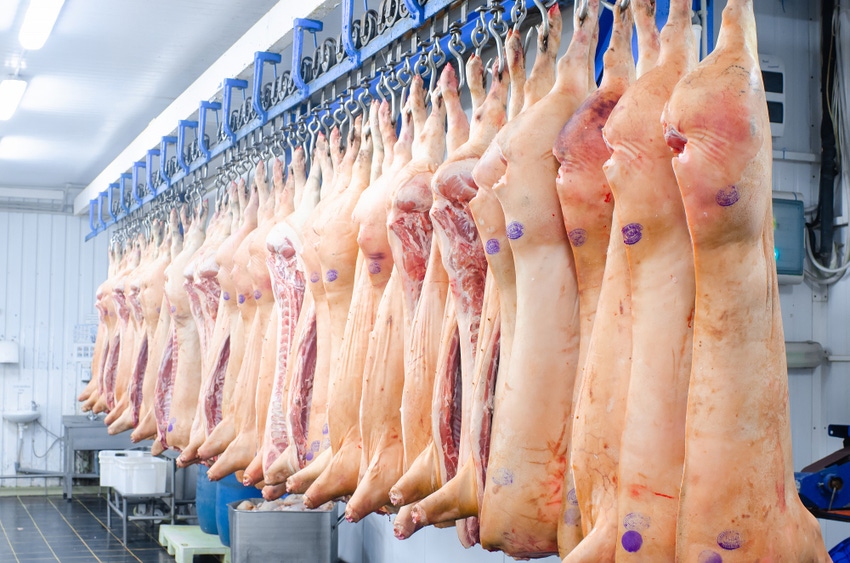Swine Inspection System time-limited trials to extend for 90 days
FSIS is commissioning a study to evaluate the impact of increased line speeds on worker safety.

Just two days before the USDA’s New Swine Slaughter Inspection System time-limited trial was set to expire, the Food Safety and Inspection Service has announced it is extending the TLTs for up to an additional 90 days while an independent study is being designed by a team of experts. Letters are being sent to the six swine establishments with requirements they will need to continue to meet to operate a TLT during the 90-day period, including keeping in place measures outlined in their worker safety agreements.
FSIS says the extension is necessary as data submitted by the swine establishments was not sufficient to evaluate the impact of increased line speeds on worker safety.
In March 2021, a court order issued by the U.S. District Court for the District of Minnesota vacated the part of the USDA final rule eliminating line speed limits for NSIS establishments. As a result, all NSIS establishments were required to operate at line speeds not exceeding 1,106 head per hour.
FSIS, in consultation with the Occupational Safety and Health Administration then developed a time-limited trial that enabled NSIS establishments to experiment with ergonomics, automation and crewing to create custom work environments that will protect food and worker safety while maintaining productivity.
In November 2021, NSIS establishments were invited to apply to participate in a trial, and six establishments were approved to run time-limited trials:
Clemens Food Group, LLC, Hatfield, Pennsylvania
Quality Pork Processors, Austin, Minnesota
Wholestone Farms Cooperative, Inc., Fremont, Nebraska
Clemens Food Group, LLC, Coldwater, Michigan
Tyson Fresh Meats, Inc., Madison, Nebraska
Swift Pork Company, Beardstown, Illinois
FSIS says it will follow up with additional communication to the public once the details of the study, including its duration, are determined.
Earlier this month the United States Senate Committee on Agriculture, Nutrition and Forestry noted without a permanent solution or an extension of the trials, "affected pork processors will have to reduce their operational capacity, which reduces demand for hogs, delivering an economic blow to farmers who are raising hogs during the worst economic environment in more than 20 years."
For consumers, those limited supplies will put "upward pressure on food prices at a time when food price inflation is stubbornly and historically high," the committee wrote.
About the Author(s)
You May Also Like




.png?width=300&auto=webp&quality=80&disable=upscale)
